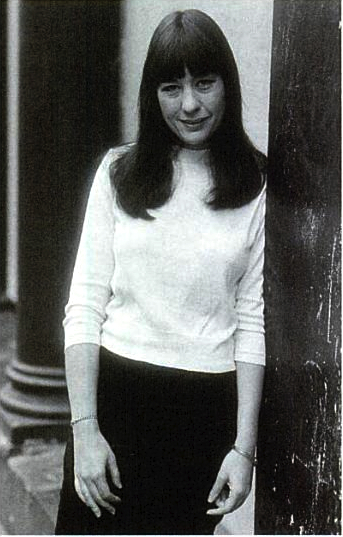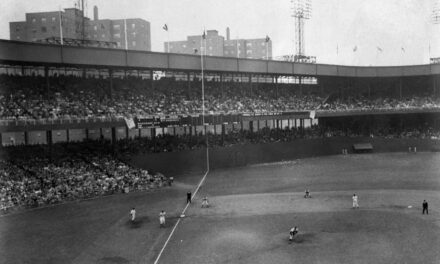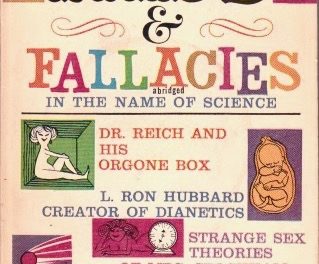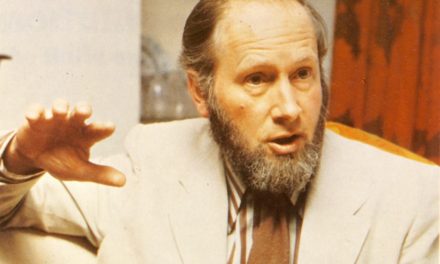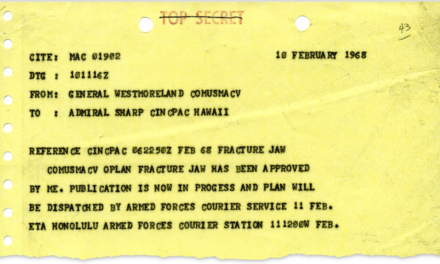Susan B.
1/20/22 I once held her in my arms and there she was on the front page of The Times in an obituary for the son of a real estate mogul. Real estate moguls are celebs in New York City —the Tishmans, the Zeckendorfs, the Trumps, the Dursts… If Robert Durst hadn’t come from an REM family he would have been just another serial killer.
Durst’s first known victim was his wife, a medical student who vanished in January, 1982. According to the Times, “Ms. Berman, a journalist, acted as Mr. Durst’s media liaison during the ensuing tabloid frenzy. Prosecutors said he had confided in Ms. Berman, who helped him evade the authorities. It was Ms. Berman, prosecutors said, who made a critical phone call while posing as Mr. Durst’s wife that made it appear that she was still alive and steered detectives away from the actual crime scene.”
When I met Ms Berman it was 1975 and she had just published an article in City Magazine called “Why Women Can’t Get Laid in San Francisco” (based on interviews, not her own experience). I’d written a piece for the same issue. City was then being edited by flamboyant Warren Hinckle and produced in a town house on Jackson Street owned by the free-spending (for a brief while) publisher, Francis Ford Coppola. That’s where we must have met. She had a sunny apartment on Baker St., on the southern slope of Pacific Heights. She was funny in a judgmental way, a girlie-girl. Not many women I knew in those days wore perfume. She was seriously phobic —wouldn’t drive over bridges, which made traveling options limited. She once asked a detective agency to confirm that a gift she’d gotten by mail was not going to explode when opened.
Her father, Davey Berman, had been a mobster, co-founder of the Flamingo Hotel in Vegas after World War Two. He was murdered in ’57. His funeral was the biggest Vegas had ever seen. The rabbi said, “He saw a boom town where others just saw desert.” Susan was eight years old.
She’d been raised as a princess but we had something in common. My mother’s father had been associated with the mob in New York. He was one generation ahead of Davey Berman, a literal OG of lesser rank. What grampa did in “the city” for days on end was concealed from me and my cousins in Brooklyn. We were told he managed a restaurant. One time there was an emergency and I got to go inside grampa’s restaurant. All the tables were filled with men playing cards and drinking tea. Grampa, it turned out, ran a front for their hangout
Susan B, just seein’ you again at last
We may not share any plans but we do share the past
You got the map of Russia all over your face
Could it be that our forefathers had to split the same place?
Oh, oh, ohoh… Feel the waves rollin’ in
On that old Black Sea port again tonight
Mama, you’re like soul food to me
Chicken soup when it’s cold out a glass tea
Brisket on rye and pickles in barrels of brine
Sweet potato pirogen, Mogen David wine
Oh, oh, ohoh…Halfway around the world
Only to find an Odessa Girl (no wonder mama)
You’re just down home to me
Chocolate almond eyes of a refugee
Russ & Daughters’ herring not to mention his wife
And brunch on a Sunday mornin’ in an orderly life.
(Russ & Daughters was —and still is— an appetizer shop on the Lower East Side patronized by Jews whose traditional feast was no longer the Sabbath supper but the Sunday brunch. An orderly life was the opposite of the life she lived.)
My fatal flaw, from Susan’s POV, was lack of desire to get rich. She thought it was a serious psychological problem. (I realized too late in life that she was right.) When she offered to treat me to a visit to Wilkes Bashford, the high-end clothier, I made my exit. Not long afterwards she moved back to Los Angeles. David Fechheimer, a detective on retainer from Robert Durst, occasionally gave me news of her. She was seeing a man whose last name was Mister. Saying “Mr. Mister” amused Fech greatly. He said that Durst was on the scene, not as a lover but as a friend and patron. She pursued movie deals, but she must have realized by 2000, at age 55, that her writing wasn’t going to support the lifestyle she wanted. I gather she intermittently asked Durst for an assurance of longterm support. Maybe she reminded him that after his wife disappeared in ’82 she had helped sell his alibi. Robert Durst, an insane man, heard this as a blackmail threat and one night came up behind her with a pistol. I only wonder whether she felt the barrel or never knew what hit her.
Fech said that Durst had remarried at some point, so some lucky woman will get an estate said to be worth $100 million. Minus the “defense team” fees.
Afterthoughts re Lucille Ball
Aaron Sorkin’s decision to make J. Edgar Hoover the Deus ex Machina who saves the day in “Being the Ricardos” took a perverse kind of courage. Neolibs of his ilk have been burnishing the FBI’s reputation since 2016, but none had gone so far as to glorify The Director, J. Edgar himself. His decision to glorify the FBI involved downplaying the role of the House Un-American Activities Committee. Nowadays nobody has heard of HUAC but the FBI’s budget and prestige are sky high. There’s even a new TV show, “FBI International,” to burnish their image. Aaron Sorkin aims for political impact in the now and does not let the truth about history impede him.
In the 1950s HUAC was led ’50s by Rep Francis Walter (R.-PA). Walter’s name was as well known to victims of the witch hunts (and their kids) as Joe McCarthy’s. It was HUAC that made made red-baiting a media circus in 1947 with the investigation of Hollywood writers actors, and directors. It was HUAC that interrogated Lucille Ball in closed session in May ’52. It was HUAC member Donald L. Jackson (R.-CA) who held a press conference to announce —after Walter Winchell and the LA Herald Express revealed that Lucy had been questioned by HUAC — that the committee had cleared her of any link to Communism. HUAC’s stamp of approval for Lucy led the news broadcasts and that afternoon’s Herald-Express. Desi Arnaz’s patriotic speech to the studio audience that night —the climax of “Being the Ricardos”— was anticlimactic and did not mention J. Edgar Hoover.
The real turning point in Lucille Ball’s political saga had come when HUAC decided to hear her in executive rather than open session. Why did Rep. Francis Walter and his Roy Cohn forego the publicity they almost always sought? Did their investigators know they didn’t have any damning info on Lucille Ball?
No —because they did have something on her! Not only had she registered Communist in ’36, she had been appointed by a man named Emil Freed as a delegate to the CP nominating convention, and she had allowed the Party to hold at least one meeting in her house in Los Angeles! Those acts of support were more damning evidence than HUAC files contained on many a celeb fellow traveler who got questioned in open session. Lucille Ball had done more than enough to warrant questioning: “And who attended that meeting at your house? Do you really expect us to believe you gave access to total strangers, Mrs. Arnaz?…” They could have questioned her about every leftwing group that Grampa Fred Hunt ever joined. “Do you expect us to believe that Mr. Hunt, the man you’ve refered to as ‘Daddy,’ never discussed with you the goals of the International Workers of the World?” And on and on with their accusatory innuendos while reporters took notes and flashbulbs flashed. Lucy in front of HUAC would have been the biggest story of the day and enhanced the fame of HUAC. But whoever chose to hear her in secret session calculated —shrewdly— that if Lucille Ball was exposed as a Comsymp, millions of US Americans might rethink their unconditional hatred of Comsymps. So they sacrificed personal publicity for the good of the rightwing political agenda (which was to roll back New Deal reforms).
Moreover, thanks to Grampa Fred, HUAC could define Lucy as a cooperative witness. By naming the late Fred Hunt as her one great influencer, she didn’t have to name any more names! His final gift to his beloved granddaughter was a Stay-off-the-Blacklist-Free card.
Another historic reality misrepresented by Sorkin was the importance of Jess Oppenheimer, the truly creative executive producer and head writer of “I Love Lucy.” Oppenheimer had produced and written “My Favorite Husband,” the radio show starring Lucy that convinced CBS to give her a TV show. Oppenheimer had realized that Lucy needed more foils than her husband and he created the couple who would become Fred and Ethel Mertz on TV. Oppenheimer hired the two staff writers who made the transition with him from drafting radio scripts to TV scripts. (Both are characters in “Being the Ricardos.”) But Sorkin makes Oppenheimer seem nebbishy, and then petty when he resists Desi Arnaz’s request for a co-producer’s credit.
Before his involvement with Lucille Ball, Oppenheimer had been a writer on the very droll Baby Snooks radio show. You may be too young to remember. Baby Snooks was a clever, assertive little girl She was played by Fanny Brice, a subtly subversive comedienne who was then a mature woman. (In “Funny Girl,” Barbra Streisand plays Fanny Brice as a young woman.) Brilliant Jess Oppenheim succeeded in transplanting the spirit of Baby Snooks into Lucy Ricardo. Lucy is Baby Snooks grown up.
Remembering Bob Dole
When the news came last month that Bob Dole had died, I recalled his debate with Bill Clinton in mid-September, 1996. I was watching with Dennis Peron at the San Francisco Cannabis Buyers Club, which was quiet but not empty. Attorney General Dan Lungren had ordered the club shut after the August 4 raid. When I dropped in Dennis had reminded me, as usual, “I’m supposed to talk to you. I’m supposed to direct you to Dave Fratello in Santa Monica.” (Fratello was working for the Soros-funded PR man, Bill Zimmerman, who had replaced Dennis as campaign manager.)
The small portable TV in Dennis’f office was tuned to the PBS News Hour. Bob Dole came on the screen. They were replaying his recent speech at Villanova University on “the drug issue”—and several club staffers had gathered around to watch. “The simple fact is that drug abuse, especially among young people, leads to more criminal activity,” said Dole.
“Because you get arrested for smoking marijuana!” said Dennis. “Three quarters of the people in jail are in there for marijuana! Are they going to build prisons from sea to shining sea? Twenty million Americans smoke marijuana!”
Bill Clinton came on next, telling a police officers’ convention that he was second to none in his support for the war on drugs. He proudly cited his appointment of 4-Star General Barry McCaffrey as drug czar. “He kept drugs from South America out of this country,” Clinton asserted, turning on his Southern accent and with a straight face. Dennis repeated, but as a question in his Long Island accent, “He kept drugs from South America out of this country?”
Clinton then took credit for a bill that specified the death penalty for “drug kingpins.”
“Am I a drug kingpin?” asked Dennis kind of seriously.
Clinton went on: “We proposed the largest anti-drug effort in history, and I hope Congress will give us the extra $700 million we asked for…”
Dennis was disgusted. “All these politicians and members of narcotics associations should remember that their own family members may have cancer someday. And they may find that marijuana brings some relief… It’s not even about marijuana anymore. It’s about where we’re going and who we are, just like the politicians say.” He had been doodling out campaign ads, but it was all just an exercise because Bill Zimmerman didn’t want his input. “Imagine being called ‘a liability’ to your own movement,” Dennis sighed.
In my no-longer-trustworthy memory Dole had made a Viagra ad involving Britney Spears. Or was it a Pepsi ad? A check online provided clarification. I had conflated three ads made by the former Senate Majority Leader. The first was a dignified pitch for Viagra in which Dole, seated in a leather armchair incongruously placed in a marble Corridor of Power, began talking about “Courage.” He pointed out that military veterans were prone to Erectile Dysfunction and seeking assistance took courage. A second ad began with Dole in a windbreaker by the seashore talking in the same serious tone about the product that had changed his life for the better… Pepsi-Cola. It was funny the first few times you saw it. Dole’s third Mad Ave gig was a Pepsi ad featuring young Britney Spears doing her cheerleader dance moves and cutting to various people ogling their TV sets as she herky-jerked away. The final cut showed an ogling Bob Dole holding a can of Pepsi and seated next to a dog who was also watching with apparent interest. Dole says, “Down boy.” FADE TO BLACK.

